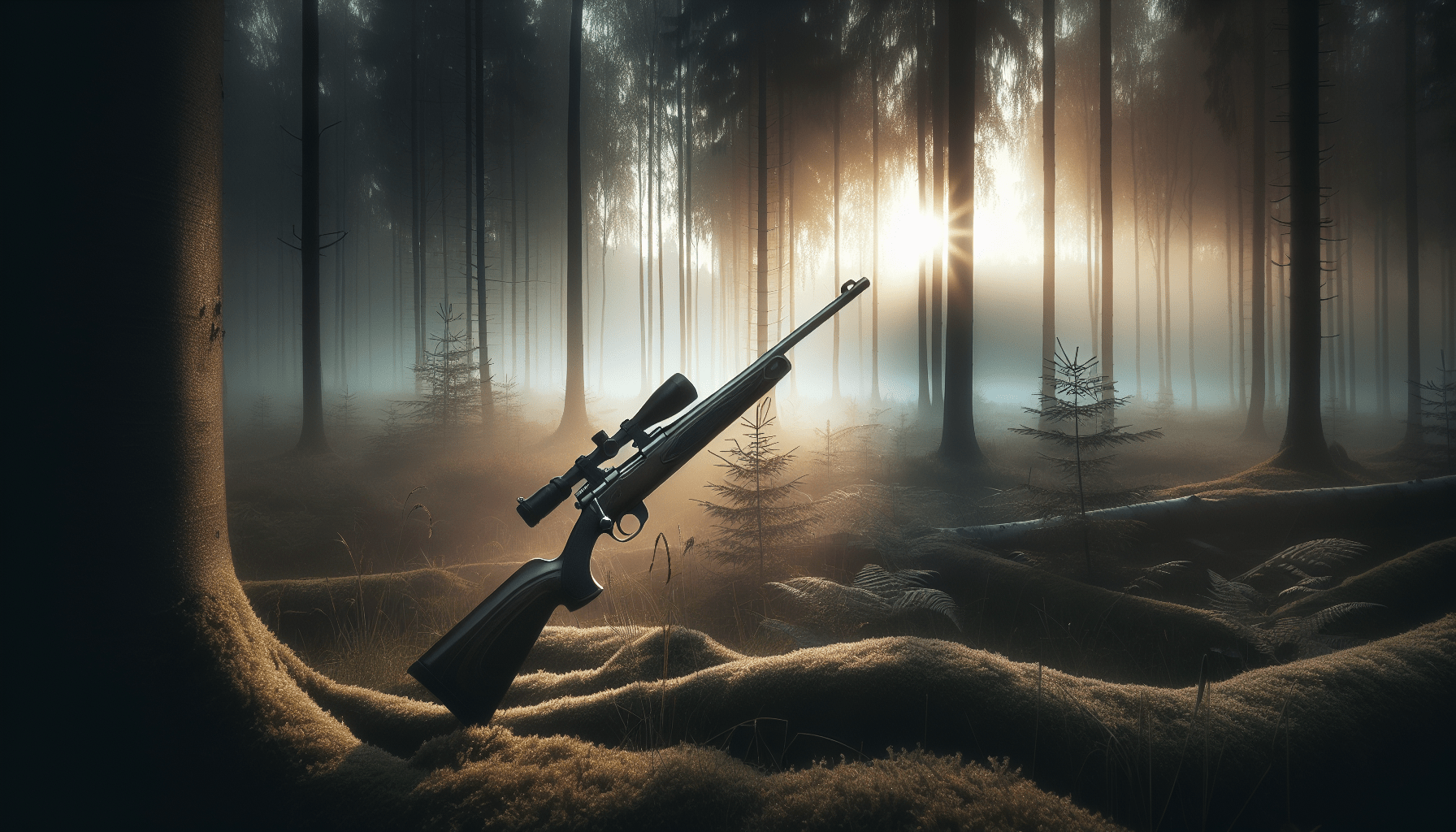Have you ever found yourself pausing to contemplate the ethics of hunting with firearms? The very phrase can conjure images of hunters quietly stalking through the woods, the crack of a rifle shot, and debates filled with as much passion as a family holiday dinner. This topic is as complex as it is charged, weaving together threads of tradition, conservation, human rights, and animal welfare. While we explore the ethical tapestry of hunting with firearms, the goal is to shed light without casting judgment, sparking thought rather than igniting controversy.

Understanding the History of Hunting
Hunting has been part of human existence for thousands of years. Initially driven by necessity, it was a means of survival, a pursuit of sustenance. Over millennia, the act of hunting evolved from essential practice to a blend of sport, tradition, and conservation strategy. In modern times, hunting with firearms has carved its niche into various cultures, with laws and ethical considerations developing alongside advancements in technology and changing societal values. As you ponder your hunting journeys, remember they carry the weight of history and the echoes of ancestral survival stories.
The Evolution of Hunting Practices
The progression from primitive tools to sophisticated firearms marks significant advancement in hunting practices. This shift allowed humans greater success in providing for their communities but also introduced new ethical and ecological challenges. With increased accessibility and effectiveness of firearms, regulations became crucial to ensure sustainable wildlife populations. Navigating these historical transformations offers perspective on the ethical dilemmas hunters face today.
The Role of Firearms in Hunting
Firearms revolutionized hunting, bringing accuracy and efficiency to new levels. While they afford hunters the ability to take game from longer distances, they also intensify debates surrounding ethics. At the core, the discussion often centers on fair chase principles, animal welfare, and the environmental impact.
A Closer Look at Fair Chase
Fair chase is a principle that seeks to maintain a balance of power between hunters and their prey, emphasizing sportsmanship and respect for wildlife. Firearms challenge this concept, as they can extend a hunter’s reach significantly. Consider that balance: is the hunt fair when the technology outweighs the instincts and agility of the prey? Balancing technological advantage with ethical responsibility is a continuous conversation among modern hunters.
Considering Animal Welfare
Humanely harvesting game should always be at the forefront of hunting discussions. Quick, clean kills are seen as the ethical goal, reducing suffering and honoring the animals. Firearms capable of delivering precise and lethal shots must be handled with the utmost respect and skill, demanding proper training and practice. As technology advances, so must our commitment to these ethical standards.
Conservation and Wildlife Management
Mark Twain once mentioned, “Everybody talks about the weather, but nobody does anything about it.” The same might be said for wildlife conservation. Hunting, while often criticized, plays a significant role in conservation strategies. Regulated hunting can contribute to maintaining balanced ecosystems and funding conservation efforts.
The Intersection of Hunting and Conservation
Many wildlife agencies depend on funds generated from hunting licenses and fees to conduct research and develop conservation initiatives. Ethical hunters, through their contributions, become stewards of the environment, supporting sustainable ecosystems. When considering your role in this cycle, think about how participating responsibly in hunting can align with broader environmental goals.
Impacts on Ecosystems
Overpopulation of certain species can lead to ecological disruptions, affecting both the environment and human populations. Responsible hunting, guided by scientific research and ethical standards, can help manage wildlife populations, preventing overgrazing, and protecting biodiversity. Reflecting on this, it’s clear that hunting, when done responsibly, serves a broader ecological purpose.
Balancing Tradition and Modern Views
Hunting is steeped in tradition, connecting many to heritage and cultural practices. However, as society’s views evolve, the traditional practices of a few face scrutiny from the wider public. This balance between honoring tradition and adapting to modern ethical standards is delicate.
Cultural Significance
For some, hunting is a rite of passage, a means of fostering relationships with family and nature. It provides a connection to ancestors and a way to sustain cultural traditions. Amidst rising questions about ethics, how do you honor these cultural ties while embracing the evolving standards of morality and responsibility?
Public Perception and Education
The disconnect between hunters and non-hunters often stems from misunderstanding or lack of awareness. Educating the public about ethical hunting practices and the contributions of hunting to conservation may bridge this gap. Through dialogue and education, greater appreciation for the complexities of hunting with firearms can emerge, fostering empathy and collaboration.

Responsible and Ethical Hunting Practices
Ethical hunting with firearms requires knowledge, respect, and commitment. It isn’t merely about following the law but involves adopting a mindset that respects wildlife and their habitats. Engaging in responsible practices ensures that hunting remains a sustainable and ethical activity for future generations.
Training and Skill Development
Mastering firearm safety and marksmanship is imperative for hunters. It ensures ethical kills, minimizes suffering, and upholds the hunter’s reputation. Institutions like Green Line Arms offer training and simulation experiences, providing a pathway to developing these skills in an environment focused on responsible gun ownership.
Adhering to Regulations
Compliance with hunting laws, seasons, and bag limits is non-negotiable. These regulations are in place to protect wildlife populations and ecosystems. By adhering to them, hunters contribute positively to conservation efforts and protect the integrity of their practice.
The Future of Hunting with Firearms
Looking ahead, the future of hunting with firearms will likely continue to navigate the intersection of technology, ethics, and ecology. As debates rage on, innovations in equipment, shifts in public sentiment, and evolving conservation needs will shape hunting’s trajectory.
Technological Innovations
Advancements in firearm technology, such as improvements in optics, ammunition, and silencers, present both opportunities and challenges. While they can enhance the hunting experience and success rates, they require continuous ethical reflection and responsible usage. Staying informed and thoughtful about these innovations will be crucial.
Evolving Ethical Standards
As society progresses, ethical standards surrounding hunting are likely to evolve. Sustainable practices, animal welfare, and public perception will keep moving targets for hunters to consider. A commitment to lifelong learning and adaptability is paramount for those who wish to navigate these changes thoughtfully.
Visit Green Line Arms
If you’re looking to deepen your understanding of firearms and hunting ethics, consider visiting Green Line Arms in Pensacola, Florida. They offer not just top-notch firearms and accessories, but also provide essential training and simulation experiences that focus on safety and responsibility. Whether you’re a seasoned hunter or a curious beginner, their expertise can help you harness your skills and expand your knowledge base.
Remember, while the ethics of hunting with firearms can feel like a loaded question—pun intended—it’s an important dialogue worth having. Think critically, act responsibly, and respect the natural world that hunting seeks to honor.




